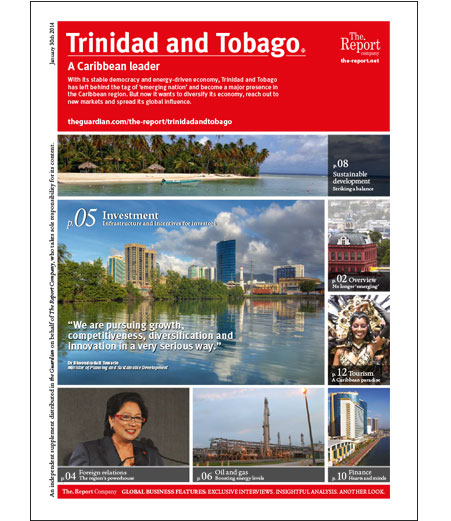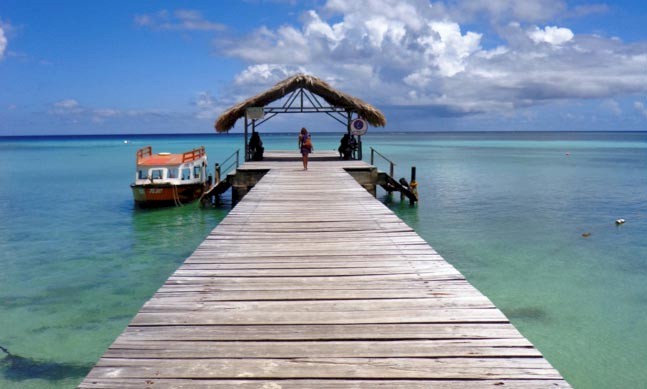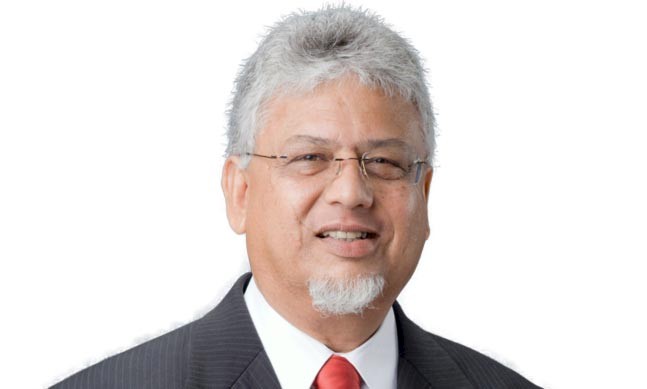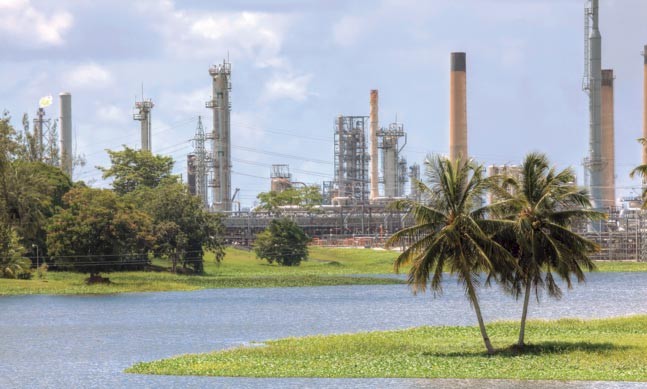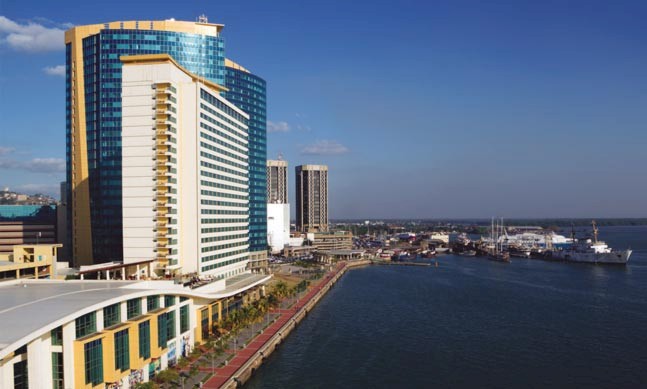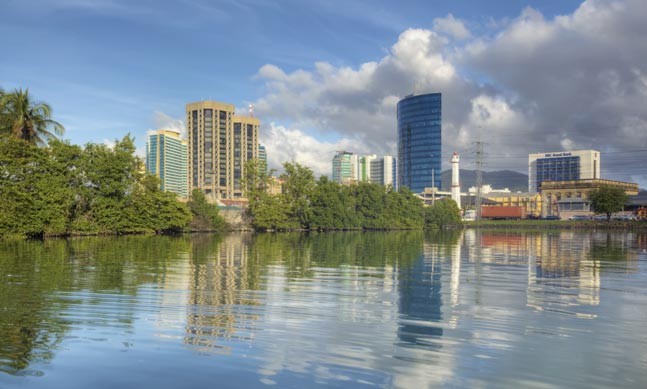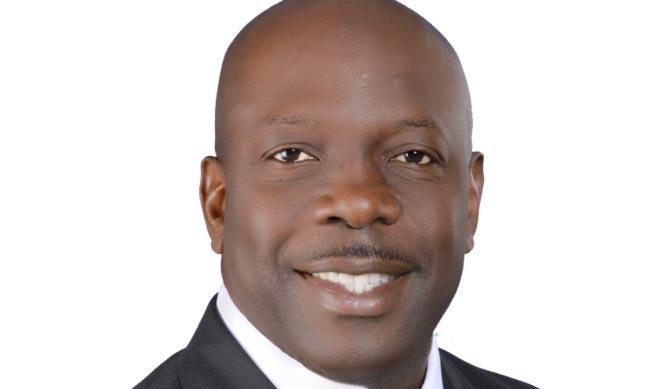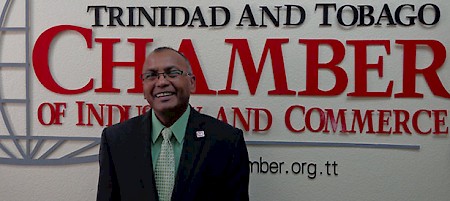
Moonilal Lalchan is a chartered accountant who is currently the vice president of finance and administration at Atlantic LNG. He is the chairman of the audit committee of the National Energy Skills Centre, and has served as the president of the chamber of commerce since April 2013.
The Report Company: How do you align the efforts of all the stakeholders to promote and foster the development of the business community in Trinidad and Tobago?
Moonilal Lalchan: The Trinidad and Tobago chamber of commerce has been in existence for over 130 years and we like to think that we are the voice of business in Trinidad. We represent all the major business sectors in Trinidad, be it energy, manufacturing or service, and we also account for a huge proportion of SMEs; about 60 percent of our membership is made up of SMEs.
We have the big companies like BP, Shell and Repsol, publically-traded corporations and we also have state companies being members with us, so we cover a wide cross section. What that does is gives us a far reach and we can develop close working relationships with other chambers. We have regular meetings with government ministers and we co-sponsor a number of events.
One of our areas of focus is crime reduction, and we work very closely with the ministry of national security. We also work with the ministry of trade in developing our small and medium sized companies and opening up new opportunities for our manufacturing sector overseas. Not only do we focus within the Caribbean countries but also on breaking into places like Panama for example. We also meet with the ministry of finance to look at some of the ways we can work with the government to encourage more business growth in the economy.
We also work with a number of organisations related to the social fabric and developing the capacity of the country. We work with the ministry of science and technology to identify some of the areas they can start working on to take advantage of the economic diversification. For example, we look at the skillset that we have and what we will need in the next five to ten years. We are working with the University of the West Indies in developing this.
As a lobby group, we lobby on behalf of the chamber but we also have a great impact and influence in things like legislation.
One of the things I want to do in my tenure is to continue to build bridges to pull all the different stakeholders together for the benefit of the country and that’s my main focus for the next two years. We as a business chamber will encourage our businessmen to continue to grow their businesses and we look for the government to be the facilitator. We work together with the educational institutions to make sure that we have the capacity to take care of new opportunities.
TRC: What kind of business opportunities do you see with Latin America?
ML: We see the Latin American countries as a big area of growth because they are right next door to us. We are looking at how we can move into Guyana to penetrate Brazil. Whereas a couple of years ago we sold about 70 percent of our LNG to the US, that figure is now less than 20 percent, and we now sell over 49 percent to Argentina and Brazil. We are negotiating agreements to take advantage of preferential treatment with these countries. We believe that we are competitive in our manufacturing sector, especially in the soft drink industry and petroleum related products. Our LNG is wanted in Central and South America, so we taking advantage of this.
TRC: How would you appraise the relationship with the UK?
ML: Some of the bigger companies that are the driving force behind our economy right now are UK based companies, for example BP and BG. Centrica also recently found gas off Tobago and BP and BG are the owners of the largest reserves of natural gas in Trinidad so from that point of view the relationship is a strong relationship.
We also have a long established relationship with the UK. We are now independent but a lot of our laws and legislation are based on the British system. We are still able to go freely to the UK and we export a lot of our products to the UK. We continue to grow the relationship. Last year we also did a trade mission to the EU and we visited Birmingham and Manchester and built relationships with the chambers of commerce in those cities.
Every year we export our talent to the UK during Notting Hill Carnival, and we have a very close link in tourism because a lot of our tourism arrivals come from the UK.
“The Trinidad and Tobago chamber of commerce has been in existence for over 130 years and we like to think that we are the voice of business in Trinidad. We represent all the major business sectors.”Tweet This
TRC: In what sectors do you see more opportunities for growth?
ML: Tourism is one of the areas that we believe is still relatively untapped. The focus has always been and will continue to be on Tobago because of its natural beauty. Tourism is one of the areas that both the government and the chamber have started as part of our strategic plan. We want to develop Tobago.
TRC: What have been some of the most important initiatives by the chamber of commerce?
ML: We look at the ease of doing business in Trinidad and how we get rid of some of the bureaucracy. That’s an area where the government has listened to us and it’s now very easy to get a business registered. We are also focussing on the port and how we can get our goods cleared off the port quickly, as well as the removal of certain trade barriers and restrictions.
We are facing right now a shortage of labour in certain key sectors, so we are looking at moving more of the workforce into more value-added employment. What we try to do is focus our energy on specific areas. The key area that we always focus on as part of our strategic plan is crime reduction because crime costs us.
TRC: How is the chamber tackling crime?
ML: We tackle it on several fronts. We meet with the minister of national security, we meet with the police commissioner, and we set up and we sponsor things like safe houses and youth clubs, so we get the kids off the streets. We give less fortunate kids the opportunity to be part of the workforce within the chamber. We have recently established a programme with the University of the West Indies called the Youth at Risk Programme where we have our chamber members and the university working in conjunction with kids who drop out of school and we use counselling and music as a means of getting them involved in alternatives to criminal activites. It’s about sustainability and preventing crime in the future.
TRC: How connected are you with other chambers in the Caribbean?
ML: We are members of the Caribbean chamber of industry and commerce. We do have some meetings with them but not at the level that we would really want to happen. We believe more can be done at the CARICOM level to encourage partnerships. Trinidad for example working with Guyana could make a big difference in utilising some of the natural resources in Guyana. Trinidad has the technology, the experience and the workforce to take advantage of some of the natural resources in Guyana. By working together government to government, business to business, we could generate electricity and send it up through the CARICOM countries right up to Haiti, Jamaica, Puerto Rico and then to the United States.
If we get the willpower of the government working to get some of these initiatives going, it would create a lot of prosperity for the whole island chain up to the United States. We want to see all the countries working together and seeing the big picture. There’s a huge pie if we all work together.
TRC: How would you like international investors to see Trinidad and Tobago?
ML: Trinidad has a lot to offer in terms of energy because we still have almost two thirds of our offshore acreage unexplored. We still have opportunities for midstream and downstream development in the energy sector. We have a very vibrant manufacturing sector which exports all over the world. Some of our manufacturers have even set up plants in the Middle East. Our land is still very rich in terms of the agricultural sector. There is a huge opportunity to develop the agriculture sector and even export agricultural products.
Tobago is one of the most beautiful islands in the world and we believe that there is a huge potential for tourism.
We have a very educated population; our literacy rate is very high and we have expertise in a number of areas from ICT to energy and the services sector. There is a downside in terms of crime but crime is all over the world. You get it everywhere.
We have all the basic infrastructure to compete on the world stage. We are already a top producer of methanol, natural gas and ammonia. We are world players and this is an opportunity for business to come in. We are a very creative people and that creativity transcends to anyone who wants to come and do business in the country.
TRC: What is your main objective for your time in your role?
ML: The main goal is really to ensure that we build bridges with all the stakeholders for the total benefit of the nation. I would like to leave a legacy for the young people coming through to see Trinidad as a place they want to be. I want to play a role in encouraging that growth in the economy.


